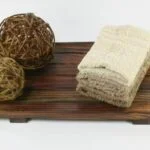Aromatherapy is not only a relaxing and therapeutic practice but also a powerful tool for natural pest control. When it comes to repelling ants, certain essential oils can be highly effective in keeping these pesky intruders at bay. So, what aromatherapy oils are good for repelling ants? In this article, we will delve into the world of aromatherapy as a means of pest control, specifically focusing on how essential oils can help deter ants from invading your home.
Using aromatherapy oils for repelling ants is a safe and eco-friendly alternative to chemical-based insecticides. These essential oils contain potent properties that insects find displeasing, thus creating a barrier that prevents them from entering your living space. Not only are these oils effective in keeping ants away, but they also provide additional benefits such as purifying the air and promoting overall well-being.
Some of the top aromatherapy oils for ant repellent include peppermint oil, tea tree oil, and lavender oil. Peppermint oil is renowned for its strong scent that ants detest, making it an excellent choice for creating a natural ant deterrent.
Tea tree oil’s antimicrobial properties not only repel ants but also disinfect surfaces while lavender oil’s calming aroma serves as a gentle yet effective ant deterrent. By incorporating these essential oils into your pest control routine, you can enjoy a pest-free home without the use of harmful chemicals.
Why Use Aromatherapy Oils for Repelling Ants
Using aromatherapy oils for repelling ants is a natural and effective way to keep these pesky pests away from your home. Unlike harsh chemicals found in traditional insect repellents, aromatherapy oils offer a safe and eco-friendly alternative that still gets the job done. By harnessing the power of essential oils derived from plants, you can create a fragrant barrier that ants find repulsive, effectively deterring them from invading your living space.
Benefits of Using Aromatherapy Oils for Ant Control
One of the main advantages of using aromatherapy oils for repelling ants is that they are non-toxic, making them safe to use around children and pets. Traditional insecticides often contain harmful chemicals that can be dangerous if ingested or inhaled, especially in enclosed indoor spaces. Aromatherapy oils provide a natural alternative that offers peace of mind when it comes to the health and safety of your loved ones.
Effectiveness of Aromatherapy Oils Against Ants
Many common essential oils have been found to be highly effective at repelling ants due to their strong scents and properties. Certain aromatherapy oils disrupt the ant’s pheromone trails, confusing them and deterring them from entering your home.
Additionally, some essential oils have antibacterial properties that can help eliminate any traces of food or other attractants that may draw ants inside. With regular application and proper use, aromatherapy oils can create a protective barrier against ant invasions while leaving behind a pleasant aroma in your living space.
Top Aromatherapy Oils for Ant Repellent
Aromatherapy is a natural and effective way to repel ants from your home without the need for toxic chemicals. By using essential oils derived from plants, you can create a pleasant environment while warding off these pesky pests. Below are some of the top aromatherapy oils known for their ant-repellent properties:
- Peppermint Oil: Peppermint oil is one of the most powerful essential oils for repelling ants. Its strong scent overwhelms and confuses the ants’ sense of smell, making it difficult for them to navigate through your home.
- Tea Tree Oil: Tea tree oil is another potent essential oil that not only repels ants but also has antibacterial and antifungal properties. Its strong smell disrupts the ants’ communication and tracking abilities, deterring them from entering your living spaces.
- Lavender Oil: While lavender oil is commonly known for its relaxing scent, it is also an effective ant deterrent. The sweet aroma of lavender disrupts the ants’ pheromone trails, making it challenging for them to find their way around your home.
By incorporating these aromatherapy oils into your pest control routine, you can effectively keep ants at bay while enjoying the natural benefits of essential oils. Whether used alone or in combination, these oils offer a safe and eco-friendly alternative to traditional insect repellents. In the following sections, we will explore how to use these essential oils to repel ants effectively in your home.
Peppermint Oil
Studies have shown that peppermint oil contains compounds that are toxic to ants, making it an ideal natural solution for pest control. Not only does it repel ants effectively, but it also has antibacterial and antifungal properties that can help keep your home clean and free of unwanted pests. Its versatility allows you to use it in various ways to tackle ant infestations in different areas of your home.
For those wondering what aromatherapy oils are good for repelling ants, peppermint oil undoubtedly tops the list. Whether you choose to create a DIY ant spray using peppermint oil or simply place a few drops on cotton balls near entry points, this essential oil is a must-have in your pest control arsenal.
Embracing the power of peppermint oil can not only help you get rid of pesky ants but also create a fresh and invigorating ambiance in your living space.
| Peppermint Oil Benefits | Details |
|---|---|
| Repels Ants Effectively | Disrupts their ability to communicate and navigate |
| Antibacterial Properties | Keeps your home clean and free of pests |
| Versatile Use | Create DIY sprays or use on cotton balls near entry points |
Tea Tree Oil
When it comes to natural pest control, tea tree oil stands out as a powerhouse for keeping ants at bay. This essential oil is renowned for its strong antimicrobial properties, making it an effective deterrent against pesky pests like ants. Tea tree oil not only repels ants but also disrupts their scent trails, preventing them from returning to the same areas in your home.
One of the key reasons why tea tree oil is so effective in controlling ants is due to its strong scent that interferes with the insects’ ability to communicate and navigate. When ants are unable to follow their pheromone trails, they become disoriented and are less likely to invade your living spaces. This makes tea tree oil a natural and non-toxic alternative to chemical insecticides that can be harmful to both humans and pets.
To use tea tree oil for ant control, simply dilute a few drops of the essential oil in water or mix it with a carrier oil like coconut or olive oil. Then, spray the solution around entry points where ants may enter your home, such as windowsills, doorways, and cracks in walls.
You can also soak cotton balls in tea tree oil and place them near ant trails or nests to deter the insects from coming inside. With regular use, tea tree oil can help you maintain an ant-free environment without exposing yourself or your loved ones to harmful chemicals.
In addition to its potent ant-repelling properties, tea tree oil has a fresh and invigorating aroma that can brighten up any room in your home. By incorporating this powerful essential oil into your aromatherapy routine for pest control, you can create a pleasant and inviting atmosphere while effectively keeping ants away. Embrace the power of tea tree oil as a natural solution for ant control and enjoy a pest-free home without compromising on safety or well-being.
Lavender Oil
Ant-Repelling Properties of Lavender Oil
Lavender oil contains compounds such as linalool and linalyl acetate, which are believed to have insecticidal properties that repel ants. These compounds are known to interfere with the nervous system of insects, including ants, making them avoid areas where lavender oil is present. Additionally, the strong floral scent of lavender can overwhelm the sensitive olfactory senses of ants, making them steer clear of treated surfaces.
How to Use Lavender Oil for Ant Control
To utilize lavender oil as an ant deterrent, simply mix a few drops of lavender essential oil with water in a spray bottle and apply it along common entry points for ants, such as windowsills, doorways, and cracks in walls. You can also soak cotton balls in lavender oil and place them strategically around your home to create a barrier that deters ants. Reapply the solution every few days or after rain showers to maintain its effectiveness in repelling ants.
Incorporating lavender oil into your pest control routine not only helps keep ants at bay but also adds a delightful fragrance to your living space. By harnessing the power of aromatherapy oils like lavender, you can effectively deter pests while creating a more pleasant environment in your home naturally.
How to Use Aromatherapy Oils to Repel Ants
Aromatherapy oils can be a powerful and natural way to repel ants from your home. By harnessing the scents of certain essential oils, you can create an environment that is unpleasant for ants, causing them to stay away. Using aromatherapy for pest control not only helps in keeping ants at bay but also provides a delightful fragrance throughout your living spaces. So, what aromatherapy oils are good for repelling ants?
One of the most effective aromatherapy oils for repelling ants is peppermint oil. The strong and refreshing scent of peppermint is unbearable for ants, disrupting their pheromone trails and deterring them from entering your home. Simply dilute a few drops of peppermint oil in water and spray it along entry points such as windowsills, doorways, and cracks where ants may enter. This will create a barrier that ants will avoid crossing.
| Essential Oil | Method of Use |
|---|---|
| Peppermint Oil | Dilute in water and spray along entry points |
| Tea Tree Oil | Mix with water and vinegar for a natural ant spray; add to cleaning solutions |
Additional Tips and Tricks for Natural Ant Control
When it comes to natural ant control, using aromatherapy oils can be an effective and non-toxic solution. In addition to the top aromatherapy oils for repelling ants like peppermint, tea tree, and lavender oil, there are some additional tips and tricks that can further enhance the effectiveness of these oils in keeping ants at bay. Here are some helpful strategies to consider when using aromatherapy oils for natural ant control:
- Combine different essential oils: Mixing peppermint, tea tree, and lavender oil together can create a potent ant repellent blend. The combination of these oils can confuse and deter ants effectively.
- Use DIY oil sprays: Fill a spray bottle with water and add a few drops of your chosen aromatherapy oils. Shake well before spraying along entry points or areas where ants are commonly seen. This method is convenient and allows for easy application.
- Refresh the scent regularly: Aromatherapy oils tend to lose their potency over time. To ensure continuous ant repelling effects, remember to refresh the scent by reapplying the oil mixture every few days.
In addition to utilizing aromatherapy oils for repelling ants, maintaining a clean and tidy living space is crucial in preventing ant infestations. Make sure to clean up spills promptly, store food in tightly sealed containers, and keep surfaces free of crumbs. By combining good housekeeping practices with the use of aromatherapy oils, you can create an inhospitable environment for ants while enjoying the benefits of natural pest control.
Remember that consistency is key when using aromatherapy oils for ant control. Regularly employing these natural remedies can help you effectively repel ants without resorting to harmful chemicals. Embracing the power of aromatherapy not only keeps your home pest-free but also promotes a healthy living environment for you and your family.
Conclusion
In conclusion, utilizing aromatherapy oils for repelling ants can be a natural and effective way to maintain a pest-free home. The power of essential oils such as peppermint, tea tree, and lavender cannot be underestimated when it comes to deterring these pesky insects. Not only are these oils potent in repelling ants, but they also offer additional benefits such as providing a pleasant fragrance and promoting relaxation.
By incorporating aromatherapy into your pest control routine, you are not only keeping ants at bay but also creating a healthier environment for you and your family. Unlike chemical-laden ant repellents, aromatherapy oils are gentle yet powerful alternatives that do not pose any harm to humans or pets. This makes them an ideal choice for those looking for natural solutions to common household problems.
So, the next time you find yourself dealing with an ant infestation, consider turning to aromatherapy for a safe and eco-friendly solution. With the proper use of essential oils like peppermint, tea tree, and lavender, you can effectively repel ants while enjoying the numerous benefits that aromatherapy has to offer. Embrace the power of nature’s remedies and enjoy a pest-free home with the help of aromatherapy oils.
Frequently Asked Questions
What Essential Oil Keeps Ants Away?
Peppermint oil is known to be effective in keeping ants away due to its strong scent that repels them. Simply placing a few drops of peppermint oil on cotton balls and strategically placing them around entry points can help deter ants from invading your space.
What Is the Best Scent to Keep Ants Away?
The best scent to keep ants away is often considered to be peppermint. The strong, refreshing smell of peppermint oil overwhelms the sensitive olfactory receptors of ants, making it difficult for them to track their usual scent trails and forage for food in your home.
Will Diffusing Peppermint Oil Keep Ants Away?
Diffusing peppermint oil can be a helpful method in keeping ants away, as the powerful aroma will permeate the air and make it unpleasant for ants to navigate through your space. However, it is important to note that diffusing alone might not be as effective as directly applying the oil at entry points or ant-prone areas.

Are you looking for a natural way to improve your health and wellbeing?
If so, aromatherapy may be the answer for you.





